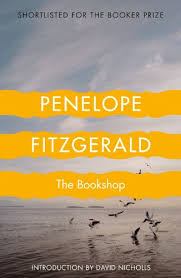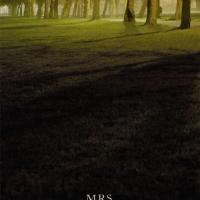The Little Buddhist Monk, by César Aira and translated by Nick Caistor
César Aira famously starts his books without knowing how they’ll end. That, coupled with his complete indifference to ordinary rules of logic or realism can make for an exhilarating read. Anything can happen. The downside of course is that anything can happen.
And Other Stories are really nailing it with their Aira covers. At first glance they’re an energetic blaze of colour which matches Aira’s writing well, but looking closer the individual elements all actually relate to the novel’s motifs. It’s very nice work whoever is doing it.
The Little Buddhist Monk opens with the monk of the title reflecting on his long-held dream of one day escaping his native Korea to visit the exotic West. As a penniless monk that dream doesn’t have much chance of being realised so when he overhears a French couple desperate for a local guide who can speak their language he offers his services. If he proves sufficiently invaluable perhaps they’ll take him home with them.
I loved the reversal of expectations of the exotic. Here France and Europe are strange lands filled with the marvellous and unfamiliar, while Korea is tediously mundane. There’s a long tradition in western literature of exoticising the East and it’s nice to see that turned on its head.
The French couple are delighted with their diminutive guide. He seems knowledgeable, he refuses payment and he certainly seems to know his way around. Before long they’re utterly dependent on him. They go to have some champagne to celebrate, and that’s when things start to get weird:
But when they raised their glasses in a toast, the French couple froze in surprise. The ‘clink’ of the glass captured a snapshot of their astonishment. The only things moving were the tiny bubbles inside the glasses, and it was precisely those bubbles that were the object of the foreigners’ rapt attention: instead of rising, they descended, going from the surface of the liquid to the bottom, where they fizzed about in crazy swirls.
This is Aira, so it’s going to get a lot stranger from there. The monk promise to take the couple to some less well known sites, much better than those on the common tourist trail. He’s offering that old tourist dream: to experience the “real” country which the average tourist never gets to see.
Initially the tour goes well. He takes them to a pair of ancient temples and tells a curious story of a suicidal horse which threw itself off the top of one of them. In a fractal reflection of the wider novel the story seems rich with meaning, until you try to say exactly what meaning that might be:
What a beautiful, sad story, the French couple commented, and what a rich message it must surely contain for anyone who can correctly interpret it.
From there the tour gets rapidly stranger. The more the tourists follow the monk the less clear it is where he’s taking them. Everything is interesting, but it all seems increasingly idiosyncratic and they start to wonder at the nature of their guide:
And so they set off back along the narrow alleyways, hurrying after the little figure who glided along at ground level. Slightly uneasy, they wondered who exactly they were following. If they had to explain, what would they say? […] They understood him perfectly, and yet in some (indefinable) way his size still gave rise to the doubt: who exactly did they understand so well? How? Following him along these narrow streets, which were a chaotic mixture of East and West, was like following the genie of tourism, an impression only strengthened by the fact that nobody but them seemed to see him.
Eventually they take a train journey which the monk says never leaves the city but which passes through dense forests, vast mountain ranges and deep crevasses. The train stops at imaginary stations where enchanted passengers are lured off by witches to face the inconvenience of finishing their journey home on foot. It gets odder yet.
There are themes to the novel. The French husband is a photographer who specialises in 360 degree panoramic shots taken with no people in them. He aims to capture the totality of a place while as tourists he and his wife similarly seek to capture the essence of Korea. Both goals are absurd and Aira underlines this by the surreality of what they actually encounter.
The monk has never been to the west and has rendered it a fantasy; the French couple are actually in Korea but their experience of it is just as much a fantasy. But perhaps I’m just trying to find a rich meaning from what’s ultimately a collage of events.
I previously read Aira’s The Proof, which as it reaches its close arcs out in a scene of extraordinary violence. It’s an ending that shouldn’t work but that Aira somehow breathtakingly pulls off. There was a sense with The Proof that when it came time to end it Aira turned it into a firework that explodes leaving the reader both stunned and dazzled.
Unfortunately, I didn’t think Aira managed the ending of Monk nearly so well. There’s an odd note near the end where the French woman is referred to as being “Fickle as only a woman can be” which I thought an unfortunately sexist note and which underlined for me the fact that her husband is the one with the interesting job while she’s just tagging along with him.
Much worse though is a three page reveal that the little monk wants to get home in time for a TV programme which it’s vital to catch as “for the first time in history” it will definitively explain how to find the clitoris. It’s a gag that might I suppose have worked in the 1970s, but the implication that anyone who misses the programme will have lost their opportunity to discover “the path to the hidden object” just reads oddly today and seems at minimum to miss the fact that half the human race actually has them as opposed to it being an as yet unexplained feature of some strange alien species.
For me, Aira didn’t stick the landing this time. I’ve become a little too aware of novels which implicitly assume that everyone and every man are basically the same thing (once you see this it’s hard to unsee and it’s surprisingly common) and perhaps worse I thought the joke took far too long to explain without ever being particularly funny.
It’s a shame to end on such a downer note so I’ll just add that while I really didn’t like the ending up until then I was having a lot of fun. I’ll be reading his The Seamstress and the Wind and while I know how it opens I have no idea where it will go. I think with Aira that’s a large part of the point.
Other reviews
Two on this occasion plus doubtless others I’ve missed. Here’s Eric Anderson of Lonely Reader who likes it more than I did and who sees that TV programme joke as saying “something about our difficulty in really seeing each other even when we’re as intimate as possible and completely stripped down”. I see his point, but I don’t agree with Eric that it works.
Trevor at The Mookse and the Gripes here also likes the novel more than I did and calls its conclusion says“exceptionally fitting and satisfying” which certainly wasn’t true for me. However, Trevor also says “Sometimes Aira does stumble at the end, though I don’t mind too much since the journey has been so delightful” and while I think this time he did stumble I do agree that I didn’t mind too much since up until then the journey was indeed delightful.

























